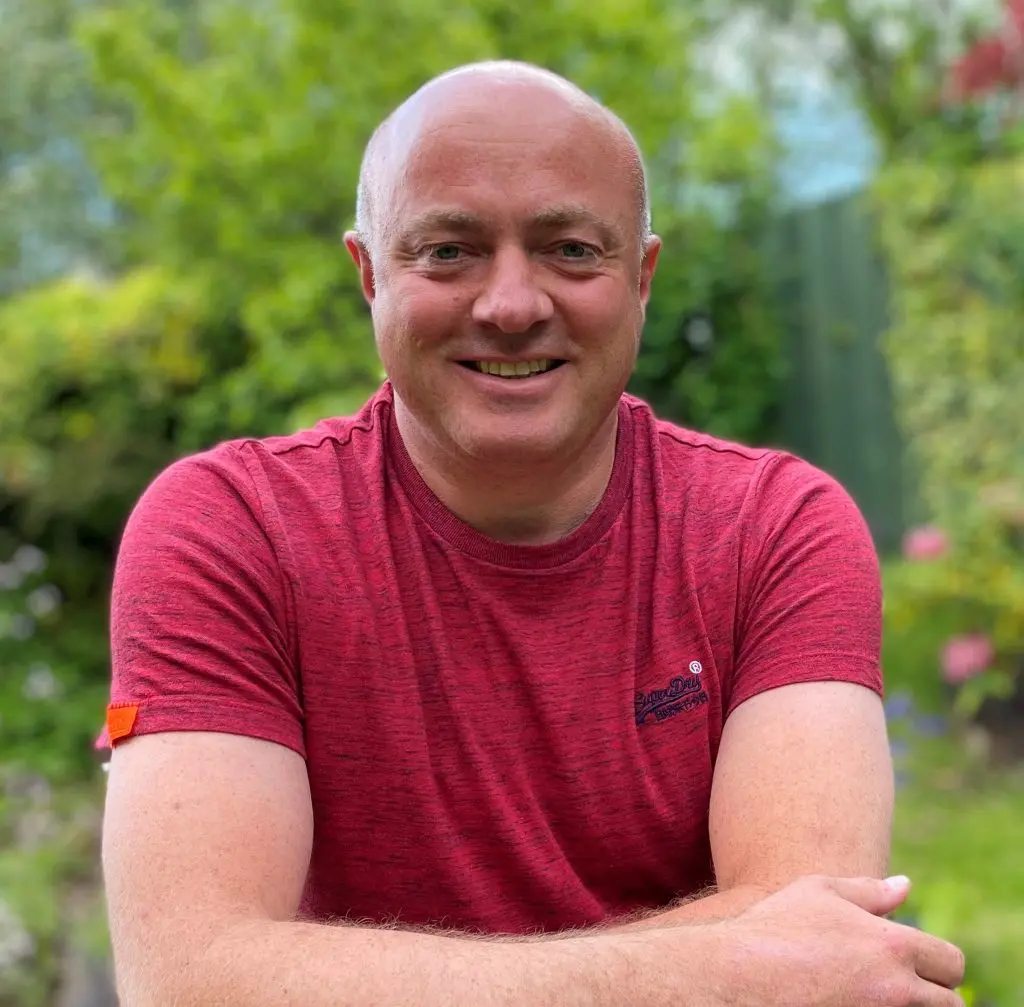

Graham Wells is a financial coach and the founder of GroWiser. He started his career in the ‘regulated advice’ part of the financial sector, but then moved away from the sale of financial products and into coaching. In that role he helps people to develop the beliefs and behaviours that will enable them to build a better financial future.
In essence, what is financial coaching?
It’s not somebody telling you what to do with your money.
It’s all about behavioural change, and recognising emotions and thought patterns that don’t serve us well. The key thing is the concept of empowerment, and working in a way that’s non–judgmental. I think that often when people seek support, they’re fearful that they will not be knowledgeable enough, or that they’ll come across as being stupid. But working with a financial coach is an absolutely non–judgmental process. It’s about empowerment of the individual, not about bamboozling people with technical jargon or telling people what they’ve done wrong and what they should do differently in the future.
How did you first get involved in financial services?
When I left school, aged 17, I had no idea what I wanted to do, so I got a job in the local bank until I decided what I wanted to do. I was still there 23 years later. During part of that time I trained as a financial advisor within the bank, including gaining the regulated Diploma in Financial Services, and I would advise customers on investments, pensions and insurance, that type of thing.
This is going back more than 20 years ago now. The financial services industry was still really quite sales–orientated. I stayed in that environment for about six years, and then realised, ‘There’s something just not suited to me here, there’s something not right about this’. So I moved into training.
I spent several years training financial advisors, and also learning about how people learn – the ‘wider’ part of learning and development – which I found really fascinating. Eventually I found myself in a supervisory role: I would accompany wealth managers when they went out to see clients. So that gave me exposure to a wide range of different types of advisor and different types of clients.
The combination of that experience as an advisor, a trainer and a supervisor really gave me a deep understanding of how limited the whole financial services sector is. What I mean by that is that less than 10% of the population have a financial advisor, and it tends to be only the wealthiest 10%. Also, it often creates a situation where clients become dependent on their advisor to tell them what to do and how to look after their money.
I learned that while it can be good to give people knowledge, the other half of the battle is application of that knowledge and how people change their behaviours and their habits.
And that’s what led me to think: ‘Wouldn’t it be nice if I could blend learning and development somehow with technical financial knowledge, to actually help people who need it the most?’ So about eight years ago I trained as a financial coach. At that time, to my knowledge, there was only one other financial coach in the whole of the UK, based down in Brighton. Since then it’s accelerated at quite some pace.
“Working with a financial coach is an absolutely non–judgmental process. It’s about empowerment of the individual.”
What are the main things that financial coaching covers?
I focus on both the day–to–day practicalities of money and also the emotions that people have around their money, and the behaviours that that leads to.
The practicalities of money might just be the basics, like setting up an emergency fund and budgeting, and working out what’s important. What things give you most satisfaction in return for the money you spend on them? This helps people to develop better financial habits. Or it could be helping people to understand their pensions, for example, or learning how to invest money for the first time.
So that’s all quite practical. The other side is behavioural. Sometimes the real work here is not even to do with money: it’s helping people to recognise how they build new habits and new mindsets. This can also touch on the emotions of money. A lot of our financial habits and behaviours stem right back to childhood. There’s one study that says most of our financial attitudes are formed by age seven, so sometimes there can be quite a lot to unpack for people there. They may have beliefs like – you’ve heard some of the famous phrases – ‘money is the root of all evil’, or ‘money doesn’t grow on trees’, or ‘money makes the world go round’. These sort of belief patterns do not always serve people in the best way.
What inspires people to look for financial coaching?
More and more people are beginning to search for this type of help. Some clients that come directly to me haven’t heard of the term ‘financial coaching’, but they’re typing similar things into Google and finding me that way. The starting point is that they’re recognising that their financial behaviours are not serving them well.
Other people that get in touch with me are working with a financial advisor but something doesn’t feel quite right about it. They want to feel more empowered and more in control, or they maybe feel that they’re paying an awful lot in fees and they’re not quite sure what the value is that they’re getting from that.
“I learned that while it can be good to give people knowledge, the other half of the battle is application of that knowledge and how people change their behaviours and their habits.”
What sorts of things do you usually help those people with?
The key point there really is recognising that the coaching element is all about empowering individuals, and it’s very much forward looking. (I guess that fits well with the name ‘Future Pathways,’ doesn’t it?) The way in which I work is not about telling people what to do or advising them. So it lends itself well to the ethos of other partners that work with Future Pathways. We have a very supportive, empowering way of working but – importantly – it’s not therapy. It’s not looking backwards and trying to fix problems from the past. It’s very much about looking to the future, and I think that way of working resonated for certain people Future Pathways are working with.
A large part of it can actually just be day–to–day money management. To be honest, that’s probably something that most of the population would benefit from. It’s about understanding day–to–day budgeting. Most of the work happens outside of the sessions. I give people homework tasks, like listing their various sources of income and also listing where the money goes. That can be a real eye opener. Some people find that they actually had no idea how much they had coming in or going out.
And that exercise alone can be so illuminating: it’s enough to raise awareness and change behaviours, to make people feel motivated to improve things.
An awful lot of people that have built up pension benefits over the years are unaware of this – they just don’t know that it’s there. So that can be quite a source of reassurance just to know that something is there. For others it can be thinking about more effective ways to repay debt, and for others it can be just exploring a little bit more about where their thoughts and feelings come from around money, particularly if they are in the process for the Redress Scheme. The thought of receiving a large lump sum of money that they’re not used to can be really upsetting. So reassurance around how they might approach that decision making process.
There must be real emotional benefits for people after they’ve got more in control of their finances?
Absolutely, and I know this from personal experience. Even though I worked in the bank, nobody there taught me how to look after my money, so I was perpetually in debt right through my twenties. And the feeling of relief after finding a way out of that was quite remarkable. So imagine people in that position through their twenties, thirties and forties, and even into their fifties… the sense of relief and finding a way out of that is tremendous.
Graham’s 5-step approach for financial wellness
Savour your spending.
Be intentional with how you spend your time and money. Spend in line with your values and don’t forget your future self.
Protect the people around you.
Prepare for the unexpected and build peace of mind for you and your loved ones.
Eliminate your debt.
Find the most effective strategy for using and repaying debt. Know the difference between ‘good’ and ‘bad’ debt.
Nurture your wealth.
Realise that to be ‘wealthy’ is different to being ‘rich’ and includes looking after your whole life, not just your money.
Design your future.
Be intentional and create a plan for how you’d like to spend your time as you get older. Don’t leave it to others to define your life path.
Check out our other Meet the Partner interviews:
Centred
Working across the Highlands, Centred support people with their mental health, in their own homes and in the Recovery Centre in Inverness. Read more here.
Dan Ross
Discover how Dan Ross helps people to reframe their thinking and find new perspectives on challenges. Read more here.
Sarah Smith at Lightbulb
We chat to Sarah Smith, founder of lightbulb.coach, to discover more about how she helps people to build their confidence and self esteem. Read more here.
Cellfeld
Cellfield help people people to improve their reading skills and are one of our support providers. Read more here.
Book Whisperers
Find out more about The Book Whisperers, a community of people that helps writers of all kinds to self-publish their work. Read more here.



